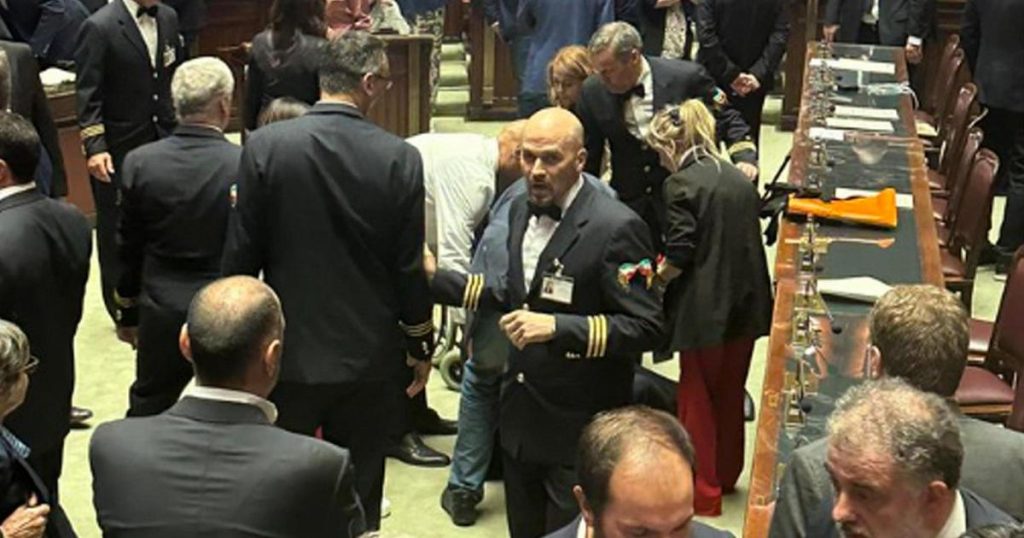The article provides updates on the approval process of the differentiated autonomy bill in the Italian Parliament. It details the approval of specific articles, such as articles 2, 3, 4, and 5, with a breakdown of the votes and brief pauses in the session. The final vote on the bill is expected in the morning. The article also includes comments from Prime Minister Giuseppe Conte, criticizing the rushed nature of the proceedings and suggesting a lack of respect for opposition rights.
The opposition, particularly the Five Star Movement (M5S), expresses frustration with the majority’s handling of the autonomy bill, accusing them of rushing through the process and limiting debate. They describe the session as a violation of parliamentary procedure, highlighting instances of misconduct and criticizing the lack of transparency in the decision-making process. The M5S lawmakers emphasize the impact on the country and call on Italian citizens to recognize the damage being done by the majority.
The Democratic Party’s leader, Chiara Braga, denounces the proceedings as a violation of institutional norms and accuses the right-wing majority of imposing a dictatorship of the majority. She criticizes the lack of urgency in debating a bill that fundamentally alters the state’s structure, suggesting a lack of willingness to engage in dialogue and compromise. Braga highlights the timing of the bill, which comes shortly after a significant referendum where Italians rejected a divisive reform proposal.
Tensions rise in the chamber as a verbal altercation ensues between parliamentarians from different parties. The incident prompts exchanges of “shame” and “intimidation” accusations, reflecting the heightened emotions and confrontational atmosphere within the chamber. The episode underscores the deep divisions and strong reactions evoked by the autonomy bill, highlighting the polarizing nature of the political debate surrounding the issue.
The majority’s decision to extend the session to conclude the autonomy bill vote sparks a wave of dissent from the opposition. The prolonged session prompts opposition members to voice their objections, reflecting broader concerns about the rushed and contentious nature of the bill’s approval process. The article captures the escalating tensions and conflicting perspectives within the Italian Parliament, underscoring the challenges of consensus-building and decision-making in a polarized political climate.


